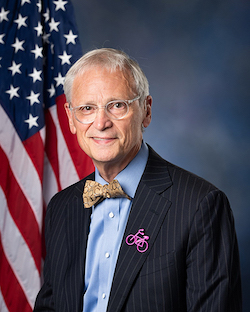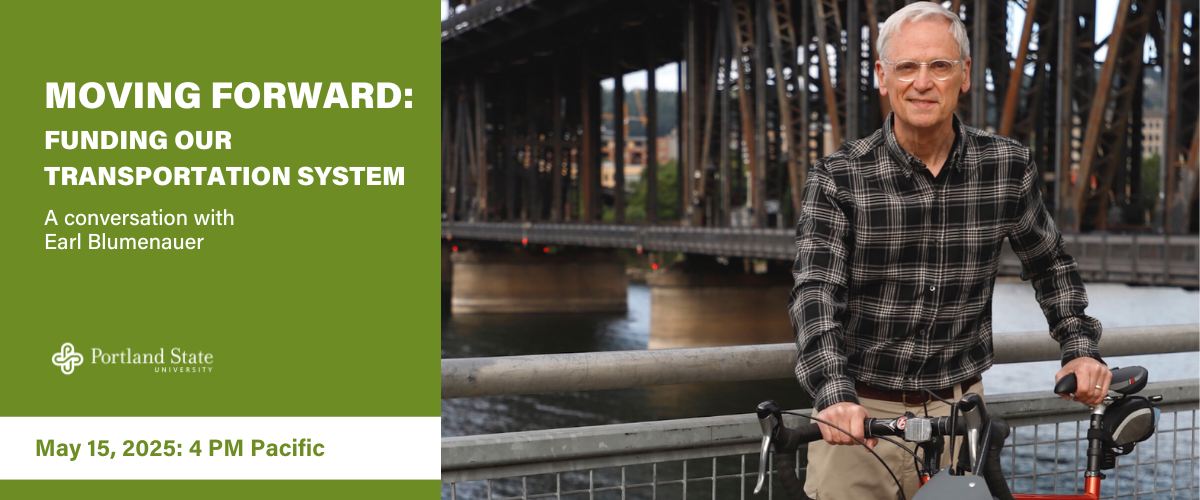This event will be held from 4:00 to 5:00 PM, with light refreshments provided.
Transportation agencies in Oregon and beyond face severe funding challenges, without enough money to maintain or improve infrastructure and programs. There are many solutions for raising funds, particularly with new technologies enabling a range of pricing strategies. Why can’t we move forward and adopt new sustainable transportation finance systems? How might new solutions improve everyday travel? Join us for a conversation with former Congressman Earl Blumenauer to discuss the barriers and solutions, drawing from 50 years of experience at all levels of government.
 For more than 50 years, Earl Blumenauer has dedicated his career to building livable communities: places where people are safe, healthy, and economically secure. In 1996, Earl was elected to the US House of Representatives. During his 28 years in Congress, he developed a reputation for approaching controversial issues in a way that breaks through gridlock and brings people together around common-sense solutions.
For more than 50 years, Earl Blumenauer has dedicated his career to building livable communities: places where people are safe, healthy, and economically secure. In 1996, Earl was elected to the US House of Representatives. During his 28 years in Congress, he developed a reputation for approaching controversial issues in a way that breaks through gridlock and brings people together around common-sense solutions.
Earl chose not to run for reelection for another term in Congress in 2024, but instead to concentrate his efforts directly at home in Portland on so many of the issues he cares passionately about. One of the ways that he will be engaged is as a Senior Fellow and Special Advisor to the Portland State University President and as a Presidential Fellow of the Institute of Portland Metropolitan Studies.
A lifelong Oregonian, Earl was raised in SE Portland and attended Centennial High School. While a student at Lewis and Clark College, he led the fight to lower the voting age in Oregon. His advocacy helped fuel the passage of the 26th amendment to the Constitution. In 1972, Earl was elected to the Oregon House as one of the youngest legislators in the state’s history during a groundbreaking legislative session for school funding, ethics reform, and Oregon’s land use laws. In 1978, he left the legislature to serve his hometown more directly, first as a County Commissioner, then on the Portland City Council as Commissioner of Public Works. There, his advocacy for public transportation, land use planning and environmental protection earned him an international reputation as a leader for livability.In 1996, Earl was elected to the US House of Representatives. During his 28 years in Congress, he developed a reputation for approaching controversial issues in a way that breaks through gridlock and brings people together around common-sense solutions.
Hosted by Portland State University:
Institute of Portland Metropolitan Studies (IMS)
Transportation Research and Education Center (TREC)
College of Urban and Public Affairs (CUPA)




